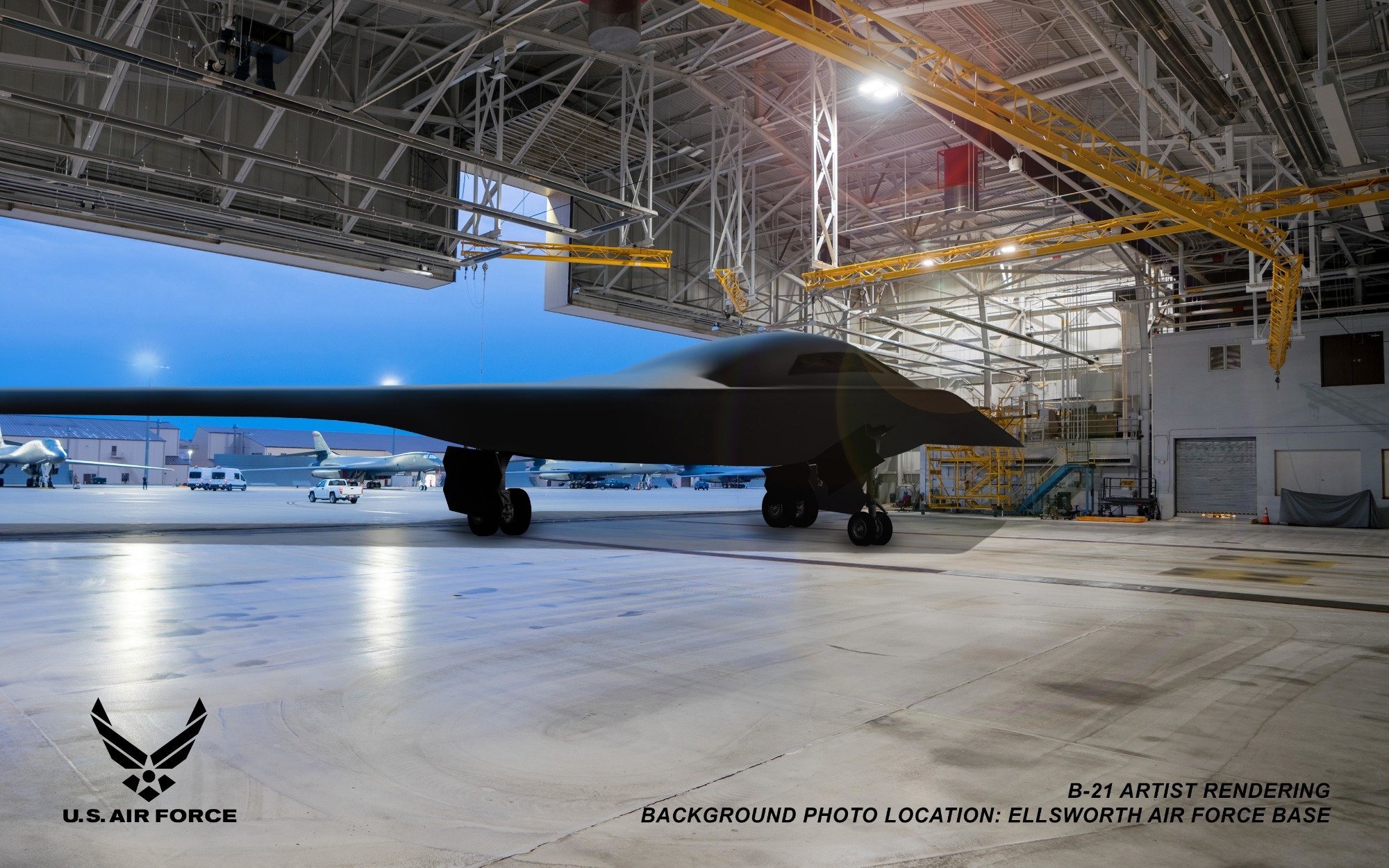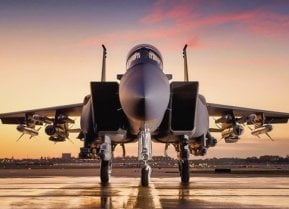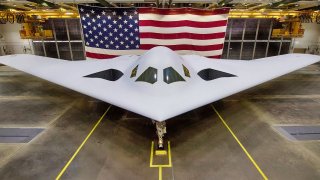B-21 Raider: America's Secret Stealth Bomber Program
At present, six B-21 Raiders are in production. But the Air Force has plans to build 100. Oftentimes, however, initial plans for fleet strength are overstated.
Photography of the ultra-sleek B-21 Raider, America’s newest stealth bomber, is beginning to emerge – raising questions about the future of the US bomber fleet.
“The B-21 Raider is the first new American bomber aircraft in more than 30 years,” NPR reported. “Almost every aspect of the program is classified.”
Indeed, the B-21 has been shrouded in secrecy. Until last December, only artist renderings of the stealth bomber were available. But now, photos are beginning to emerge with some regularity – depicting a flying wing design that looks quite similar to the bomber that the B-21 is replacing: the B-2 Spirit.
How will the B-21 be used?
“The bomber is part of the Pentagon’s efforts to modernize all three legs of its nuclear triad, which includes silo-launched nuclear ballistic missiles and submarine-launched warheads, as it shifts from the counterterrorism campaigns of recent decades to meet China’s rapid military modernization,” NPR reported.
China, who has engaged in a historic military build-up, is trending towards a 2035 nuclear arsenal of 1,500 warheads. The B-21 is intended to counter the threat, as Air Force secretary Deborah Lee James explained when the B-21 program was announced in 2015.
“We needed a new bomber for the 21st Century that would allow us to take on much more complicated threats, like the threats that we fear we would one day face from China, Russia,” James said. “The B-21 is more survivable and can take on these much more difficult threats.”
While externally, the B-21 looks like a carbon copy of the B-2, internally the two bombers are quite different. At least according to Northrop Grumman, who was awarded lucrative contracts for both the B-2 and the B-21.
“The way it operates internally is extremely advanced compared to the B-2, because the technology has evolved so much in terms of the computing capability that we can now embed in the software of the B-21,” said Kathy Warden, Northrop Grumman’s CEO.
Presumptively, the B-21 will also feature upgrades over the B-2 with respect to “advanced materials used in coatings to make the bomber harder to detect, new ways to control electronic emissions, so the bomber could spoof adversary radars and disguise itself as another object, and use of new propulsion technologies,” according to NPR.
Northrop Grumman said that the B-21 uses “new manufacturing techniques and materials to ensure the B-21 will defeat the anti-access, area-denial systems it will face.”
Warden wouldn’t offer specifics about what the upgraded technology might be exactly, but she did state that the new B-21 would be stealthier than the B-2.
“When we talk about low observability, it is incredibly low observability,” Warden said. “You’ll hear it, but you really won’t see it.”
How many B-21s will be made?
At present, six B-21 Raiders are in production. But the Air Force has plans to build 100. Oftentimes, however, initial plans for fleet strength are overstated. Reality sets in and the procurement is slashed considerably. The B-21’s closest equivalent, the B-2, had a peak fleet strength of just 20 airframes.

The B-21 is not the B-2, but like I said, reality has a habit of constricting procurement. Reality being cost (and the public’s willingness to spend finite resources on stealth bombers). The cost of the B-21 has not been disclosed. Some estimates place the cost per B-21 around $753 million. But that’s just an estimate (and the B-2 cost over $1billion per aircraft).
“The fact that the price is not public troubles government watchdogs,” NPR reported.
About the Author
Harrison Kass is a prolific defense writer with over 1,000 published articles. An attorney, pilot, guitarist, and minor pro hockey player, Harrison joined the US Air Force as a Pilot Trainee but was medically discharged. Harrison holds a BA from Lake Forest College, a JD from the University of Oregon, and an MA from New York University. Harrison listens to Dokken.
All images are Creative Commons.


